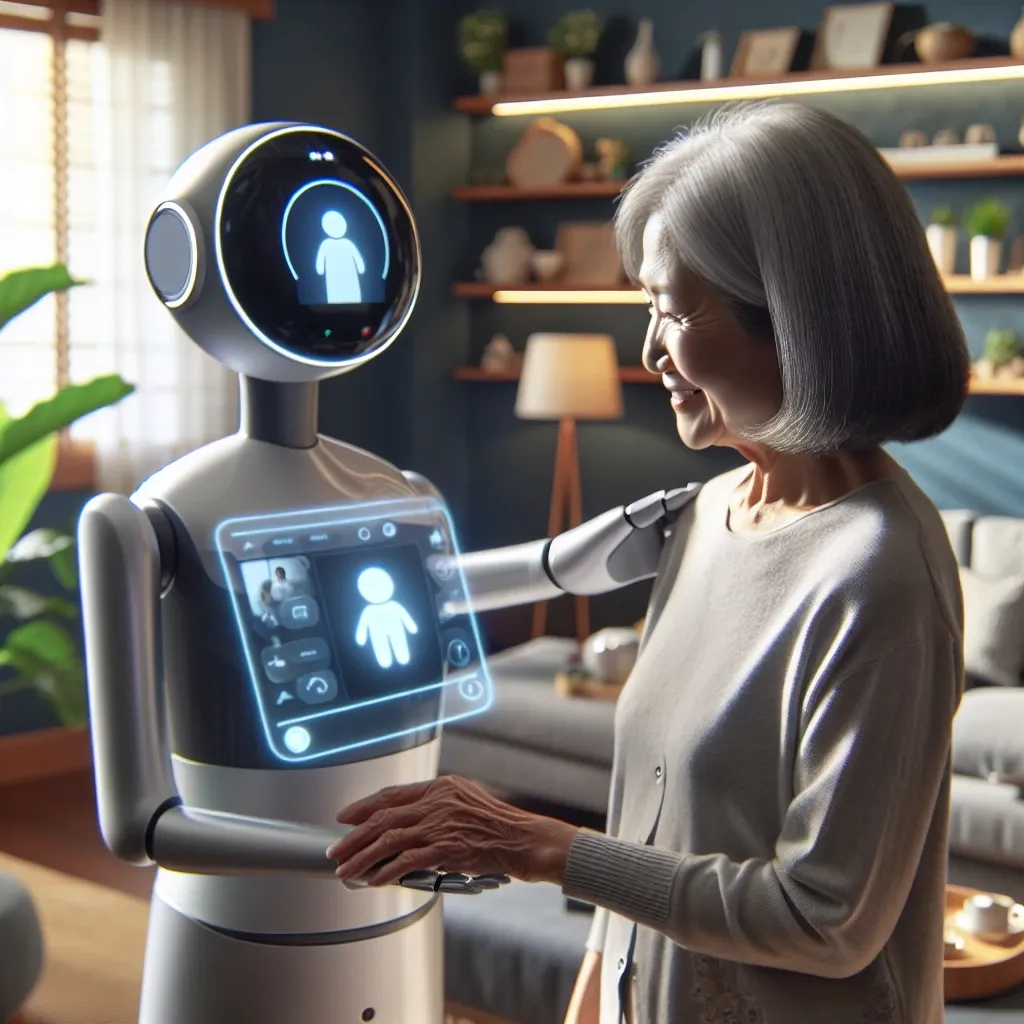Introduction
Dementia is a progressive neurodegenerative disorder that affects millions of people worldwide, leading to memory loss, cognitive decline, and a decrease in the ability to perform daily activities. As the population ages, the need for innovative solutions to care for dementia patients has become increasingly urgent. One promising development in this field is the emergence of AI-powered robotic caregivers, which provide assistance and support through memory prompts tailored to individual needs.
The Role of AI in Robotic Caregiving
Artificial intelligence has made significant strides in recent years, enabling machines to learn from their environment and interact with humans in meaningful ways. In the context of caregiving, AI can analyze data, recognize patterns, and respond to the emotional and cognitive needs of patients. Robotic caregivers equipped with AI algorithms can assist dementia patients by providing reminders, engaging in conversation, and offering companionship.
How AI-Powered Robots Assist Dementia Patients
- Memory Prompts: One of the primary functions of these robotic caregivers is to deliver memory prompts that encourage patients to recall important information, such as names of loved ones, daily tasks, or medication schedules.
- Personalized Interaction: Through machine learning, robotic caregivers adapt their responses based on the individual preferences and behaviors of the patient, ensuring that interactions remain relevant and engaging.
- Activity Monitoring: AI-powered robots can monitor daily activities and alert caregivers or family members if a patient is in distress or requires assistance.
- Emotional Support: These robots can provide companionship by engaging in stimulating conversations, playing games, or even telling stories, which can help alleviate feelings of loneliness and anxiety.
Benefits of AI-Powered Robotic Caregivers
The integration of AI-powered robotic caregivers into dementia care offers numerous advantages:
- Increased Independence: By providing consistent memory prompts and assistance, patients can maintain a greater degree of independence in their daily lives.
- Reduced Caregiver Burden: Robotic caregivers can alleviate some of the pressure on family members and professional caregivers, allowing them to focus on more complex care needs.
- 24/7 Availability: Unlike human caregivers, robotic assistants are available around the clock, ensuring that patients receive support whenever they need it.
Challenges and Concerns
Despite the promising potential of AI-powered robotic caregivers, several challenges and ethical concerns remain:
- Cost: The financial investment required for developing and implementing robotic caregivers can be a significant barrier for many families.
- Acceptance: Some patients may resist interacting with robots, preferring human contact over mechanical assistance.
- Privacy: The use of AI raises questions about data privacy and the security of personal information collected during interactions.
Real-World Applications
Several AI-powered robotic caregivers are already being used in various settings, demonstrating their effectiveness in assisting dementia patients:
- PARO: This therapeutic robot resembles a baby seal and is designed to provide comfort and companionship to dementia patients. Studies have shown that PARO can improve mood and reduce anxiety among users.
- Robear: Developed in Japan, Robear is a nursing robot designed to lift patients from beds to wheelchairs, helping to ease the physical burden on human caregivers.
The Future of AI in Dementia Care
The future of AI-powered robotic caregivers looks promising, with ongoing advancements in technology and research. Experts predict that as AI becomes more sophisticated, these robots will be able to offer even more personalized care, understanding the emotional and psychological needs of patients on a deeper level.
Future Predictions
As we look ahead, several trends are expected to shape the landscape of AI in dementia care:
- Enhanced Communication: Future robotic caregivers may develop more sophisticated communication skills, enabling them to hold more meaningful conversations and provide emotional support.
- Integration with Smart Homes: As smart home technology becomes more prevalent, AI-powered caregivers will likely work in tandem with other devices to create a seamless care environment.
- Improved Affordability: As technology advances, the cost of robotic caregivers is expected to decrease, making them more accessible to families in need.
Conclusion
AI-powered robotic caregivers represent a significant advancement in the field of dementia care, offering innovative solutions for memory support and companionship. While challenges remain, the benefits of these technologies are undeniable, providing hope for millions of patients and their families. As we continue to explore the potential of AI in caregiving, it is essential to address ethical concerns and ensure that these robots enhance the quality of life for those affected by dementia.



